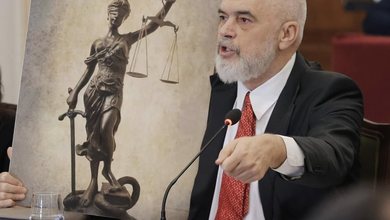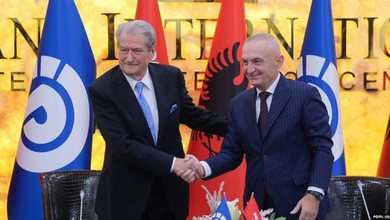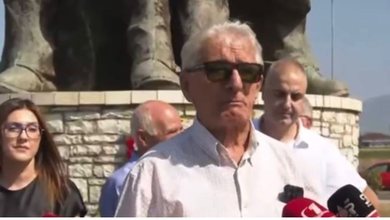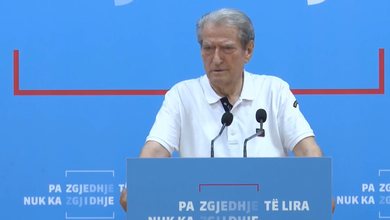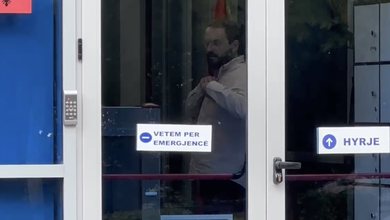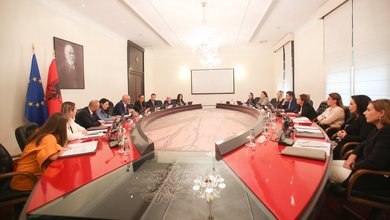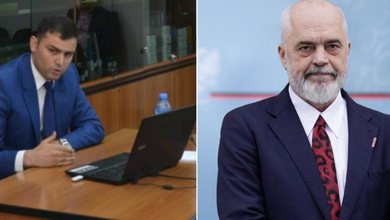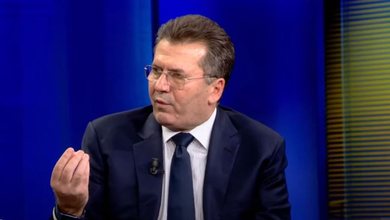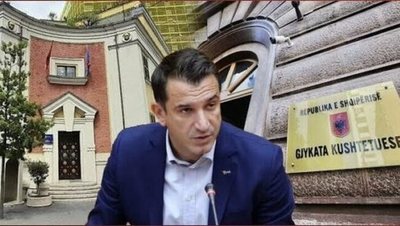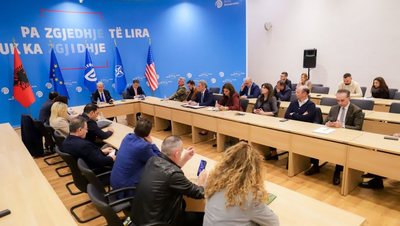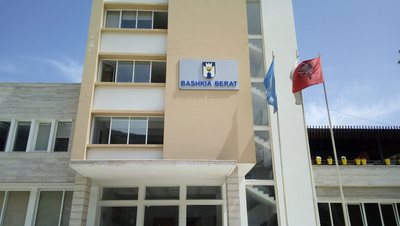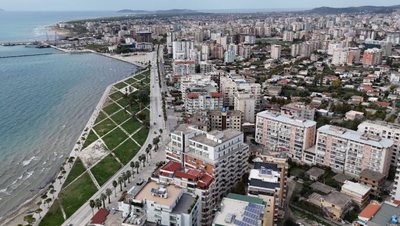
The decision of the Special Court Against Corruption and Organized Crime that rejected former President Ilir Meta's request for a change in security measures has been made public.
The decision signed by special judge Erjon Çela states that there is a risk that due to his function as president of the PL and the duties he has held in the past, Ilir Meta may exercise his influence to intimidate witnesses and damage other evidence in order to facilitate his position. Ilir Meta has been held in custody since October 21, 2024 and is currently being charged with corruption, money laundering and concealment of assets. The SPAK has named his ex-wife Monika Kryemadhi, his ex-mother-in-law, Fatime Kryemadhi, Piro Xhixho and Ema Coku as defendants.
Full reasoning of the GJKKO
At the conclusion of the trial of this case, based on the evidence submitted to the trial, the Court assesses that in the present case it is not evident that we are facing any of the cases provided for in the law when the court may dispose of the replacement of the personal security measure "prison arrest" with another, more lenient security measure. More specifically, the Court assesses that:
First, we are not faced with a case where the security measure applied no longer corresponds to the importance of the fact or the punishment that can be imposed. During the trial, no new circumstances were identified, created later and related to the criminal offense for which the security measure was imposed, circumstances that would lead the court to the conclusion that the security measure applied no longer corresponds to the importance of the fact or the punishment that can be imposed. On the contrary, during the trial it was proven that the prosecution body (Special Prosecutor's Office) by decision dated 26.05.2025 "On taking the person as a defendant and notifying the charge" has decided: "1. To take as a defendant, the person under investigation Ilir Metaj accused of committing the figures of the criminal offenses "Passive corruption of high-ranking state officials or local elected officials" in 3 (three) cases, of which in 2 (two) cases it was committed in collaboration, "Laundering of the proceeds of a criminal offense or criminal activity" committed in collaboration and more than once and "Refusal to declare, failure to declare, concealment or false declaration of assets, private interests of elected persons and public servants, or of any person who has a legal obligation to declare". As above, it is established that at the time of the development of this trial, compared to the moment of the assignment/implementation of the personal security measure "arrest in prison" the procedural position of the applicant is more aggravated because thanks to of the evidence collected during the investigations, he has already assumed the status of a defendant by being officially informed of the charges against him. So, in this specific case, as far as the charges are concerned, at the time of this trial we have a consolidation of them.
Under these conditions, the court assesses that even at the time of the development of this trial, the personal security measure "arrest in prison" imposed on the defendant Ilir Metaj continues to be proportional in relation to the importance of the fact and the sanction provided for the specific criminal offenses for which he is accused (Article 229 of the CPC).
Secondly, the court assesses that we are not before a case where the security needs have been mitigated. During the trial, the applicant (defendant) Ilir Metaj and his defense attorneys claimed that the security needs have been mitigated after the prosecution has completed the investigations by collecting all the valuable evidence necessary for the trial of this criminal case and under these conditions there is no longer a risk of influencing the receipt and authenticity of the evidence.
The prosecution opposed this claim, emphasizing that in the specific case there is no mitigation of the security needs as long as the accusation has been consolidated and the applicant has assumed the status of a defendant by attributing the relevant charges to him. Also, according to the prosecution, it is assessed that the risk of obtaining evidence continues to exist, since during the trial a number of persons belonging to the political entity where the defendant is president will be required to be questioned as witnesses. Under these conditions, the prosecution assesses that there is again a risk that the defendant will influence the obtaining of evidence in the specific case so that these citizens make statements in favor of his position in relation to the proceedings.
In relation to this claim, the court finds that the prosecution (Special Prosecutor's Office) pursuant to Article 327 of the Code of Criminal Procedure on 28.07.2025 with the act "Notification on the completion of investigations" notified the defendant Ilir Metaj of the completion of the criminal proceedings investigations (the notification was personally signed by the defendant Ilir Metaj and his chosen defense attorney, attorney Kujtim Cakrani). Pursuant to Article 327/4 of the Code of Criminal Procedure, the prosecution notified the defendant that he has the right to submit a memorandum and documents within ten days, to request the prosecutor to conduct additional investigations, to make statements or to request to be questioned.
The court also finds that the personal security measure "arrest in prison" has been imposed on the defendant Ilir Metaj, justifying it by the existence, among other things, of the condition related to the risk of "poisoning the evidence" according to the provisions of point 3, letter "a" of article 228 of the Code of Criminal Procedure. The courts have assessed that in the specific case, the presence of circumstances is evidenced from which the assessment is created that there is an eminent risk that the unconditional release with security measure of the applicant (defendant) Ilir Metaj may poison the evidence or may risk the finding and fixing of their natural state. In assessing the risk according to the provisions of letter "a" of point 3 of article 228 of the Code of Criminal Procedure, the courts have taken into account the fact that citizen Ilir Metaj, due to the function he currently holds or the functions he has held in the past, may exercise his influence to influence the the process of obtaining and verifying the authenticity of other evidence, other than documentary evidence, such as questioning persons who have knowledge of the facts under investigation, since he is being investigated for several criminal offenses. In this way, the power and connections that the defendant has created due to the functions that he currently holds, has held or his position in society create illegal practical opportunities to influence potential witnesses to the criminal fact and also other public subjects, with the aim of "poisoning the evidence", in order to facilitate his position in relation to the proceedings.
Under these conditions, from the comparison of the security needs and the importance of the fact at the moment this security measure was taken with the current situation in which the facts and circumstances are reflected at the procedural moment when its replacement is being requested, it does not result in identifying new circumstances related to the person under investigation, created after the decision to impose the personal security measure was issued, which are such as to have mitigated the security needs or the circumstances of the fact related to it.
The Court considers that the fact that in the present case the prosecution has communicated to the defendant the procedural act of notification of the completion of the investigation has not mitigated the security needs by eliminating the risk of obtaining and verifying the authenticity of the evidence. According to our criminal procedural system with an accusatory nature, evidence is formed during the judicial debate, therefore all the data collected by the prosecution during the preliminary investigation phase acquire their value in the trial. It is true that the information on the facts and circumstances on which the prosecutor will base the accusation is fixed during the investigation, but they acquire the value of evidence during the trial phase. In this regard, the completion of the preliminary investigation phase does not diminish the risk of damaging the evidence. This becomes more sensitive when we are faced with live evidence, which is such that it is not only formed exclusively during the judicial examination but has an unstable nature in relation to the facts and circumstances that present themselves to the judicial process. This evidence, with the passage of a long time from the moment of occurrence of the fact or circumstance, or under the influence of internal and external factors, tends to lose the ability to reproduce the data as it was perceived. Unlike them, frozen evidence does not change with the passage of time and under the pressure of various factors. However, here too it must be taken into account that the manner of obtaining such evidence may be found to be in violation of the law and as such the evidence may be declared unusable, which would lead to the need to obtain it again.
In this context, the court considers that, while it can be accepted that the risk of evidence being seized is reduced by the administration of frozen evidence by the proceeding body during the preliminary investigation phase, this cannot be said for live evidence. Witnesses and co-defendants or even experts, if the need arises for their questioning, will have to reproduce what they perceived before the court and answer the questions of the latter and the parties. An exception is made only in the case where the defendant requests a summary trial and the court accepts it, taking into account the statement given during the preliminary investigation phase. Such a fact does not appear to have occurred in the specific case since the case is still in the preliminary investigation phase. In this regard, live evidence is always threatened by the influence that the defendant may exercise over it.
The prosecution (Special Prosecutor's Office) informed the court that during the investigations conducted within the framework of criminal proceedings no. 122/2022, a considerable number of citizens who have knowledge of the criminal facts under investigation were questioned. Some of them have been and continue to be currently members or hold positions in the political entity in which the defendant is currently president. The prosecutor informed the court that all these citizens will be requested by the prosecution to be questioned in the trial in the capacity of witnesses, being considered as living evidence.
In these circumstances, the court assesses that there is still a risk that citizen Ilir Metaj, due to his current or past functions, may exercise his influence to influence the process of obtaining and verifying other evidence, other than documentary evidence, such as questioning persons who are aware of the facts under investigation, given that he is being investigated for several criminal offenses. In this way, the power and connections that the defendant has created due to the functions he currently holds or has held or his position in society create illegal practical opportunities to influence witnesses and also other subjects with the aim of "poisoning the evidence", in order to facilitate his position in relation to the proceedings.
In conclusion, taking into account all that was justified and analyzed above, the Court assesses that there is no reason to replace the coercive personal security measure "arrest in prison" provided for by Article 238 of the Code of Criminal Procedure, against the defendant Ilir Metaj with any other, lighter security measure.


